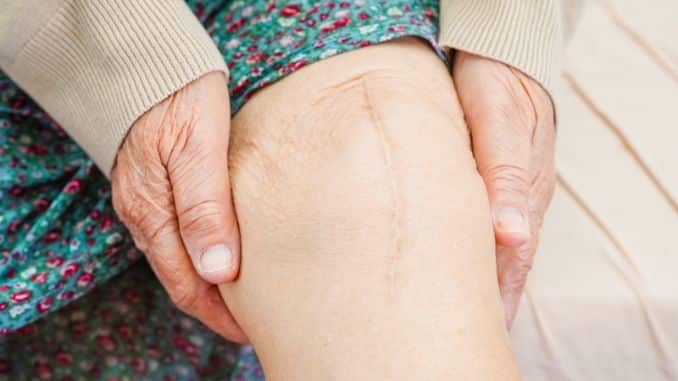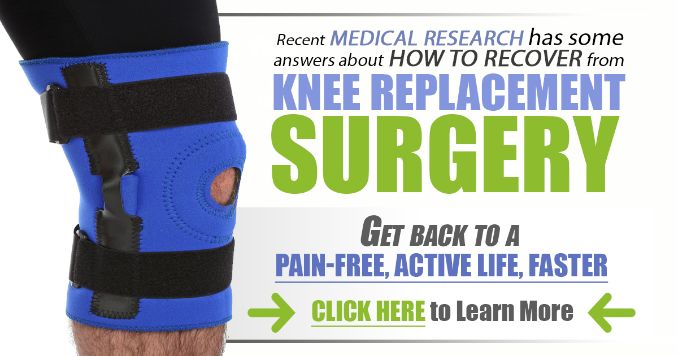
People of all ages can benefit from a knee replacement. That is, as long as you’re in good health and have no other serious medical conditions that could complicate things further. In this question quiz on Knee Replacement Recovery, we’ll discuss things you need to know about recovering from a knee replacement.
As you might imagine, recovering from a knee replacement isn’t easy. It takes time, dedication, and a lot of patience, but the result is well worth it.
Let’s test your knowledge of knee replacements and what to do when it comes to knee replacements.
Put your answers below in the blog comment or Facebook comment section.
Here are the Ten questions
1. When was the first knee replacement performed?
- a) 1963
- b) 1968
- c) 1969
- d) 1972
2. What is the most common condition that leads to a knee replacement?
- a) Osteoarthritis
- b) Rheumatoid arthritis
- c) Psoriatic arthritis
- d) Osteoporosis
3. What percentage of knee replacements are performed for ages 65 to 74?
- a) 30%
- b) 40%
- c) 50%
- d) 60%
4. By what percentage have knee replacements risen between 1994 to 2002?
- a) 40%
- b) 50%
- c) 60%
- d) 70%
5. How many knee replacements are performed in the USA a year?
- a) 300,000
- b) 350,000
- c) 400,000
- d) 450,000
6. When are knee replacements expected to double compared to the number done in 2008?
- a) 2015
- b) 2020
- c) 2025
- d) 2030
7. What will slow down your recovery from a knee replacement?
- a) Tobacco use
- b) Excessive standing
- c) Being overweight
- d) Moving your knee too much
8. What is the number one thing that will increase your speed of recovery from a knee replacement?
- a) Being the ideal weight
- b) Excellent cardiovascular fitness
- c) Full knee extension
- d) Greater quadriceps strength
9. What needs to be worked on in an exercise program when recovering from a knee replacement?
- a) Knee extension
- b) Quadriceps strength
- c) Balance
- d) All of the above
10. How should someone with a knee replacement sleep?
- a) On their side
- b) On their side with pillows between their knees
- c) On their back
- d) On their stomach
Remember to put your answers below in the blog comment or Facebook comment section.
I will have the answers for you later this week.
Rick Kaselj, MS
Kinesiologist & Personal Trainer focusing on Exercises for Injury Recovery
Key Things to Know About Knee Replacement Recovery
You’re going to feel sore. Soreness is normal in the early stages and will subside as you progress through your rehabilitation program. You’ll need assistance. Depending on your assistance (be it a helping hand or physical therapy) and your overall medical condition, you may need assistance with day-to-day tasks, getting around, and navigating the recovery process. You might not be able to return to work.
The length of time it takes you to recover from a knee replacement will depend on your age, overall health, and job type. You may have to have follow-up surgery. You may have to modify your activity level. And you may need to modify your routine and refrain from certain activities that could jeopardize your recovery.
Not all knee replacements last a lifetime. Depending on your particular situation, you may need additional surgery in the future to repair or replace your knee replacement. This is not an “all or nothing” process. This isn’t something you do once and then you’re done. You’ll have to follow an ongoing routine of exercises and consult with your doctor to ensure that you’re progressing as expected.
Other Important Things to Remember
Be prepared for the process. This isn’t something that happens overnight. It’s something that will take time and will require your full attention. Be patient with yourself. You’re going to want to progress faster than is reasonable.
Stay positive. Keep a positive mindset and outlook. That way, you’re far more likely to progress consistently, and your overall outcome will be much better. Keep a journal. You’ll want to keep track of your progress and what exercises you’ve done. You can also use this journal to track your mood and other factors affecting your progress.
Conclusion
Knee replacements are a common and effective treatment for joint pain and stiffness caused by arthritis. They are also lengthy, requiring a patient to follow an extensive and meticulous recovery process. While you’re recovering, make sure you are staying as active as possible.
The more you can stay involved in daily activities, and the more you can stay up and move, the better it will be for your overall recovery process.
It’s important to remember that recovering from a knee replacement isn’t just about getting the knee back to full strength. It’s about getting the entire lower body back to normal capacity. You’ll need to be diligent, patient, and consistent with your exercises.
If you are looking for an exercise program to help you or your client recover from a knee replacement, check out the Knee Replacement Handbook:
CLICK HERE to watch the YouTube video



